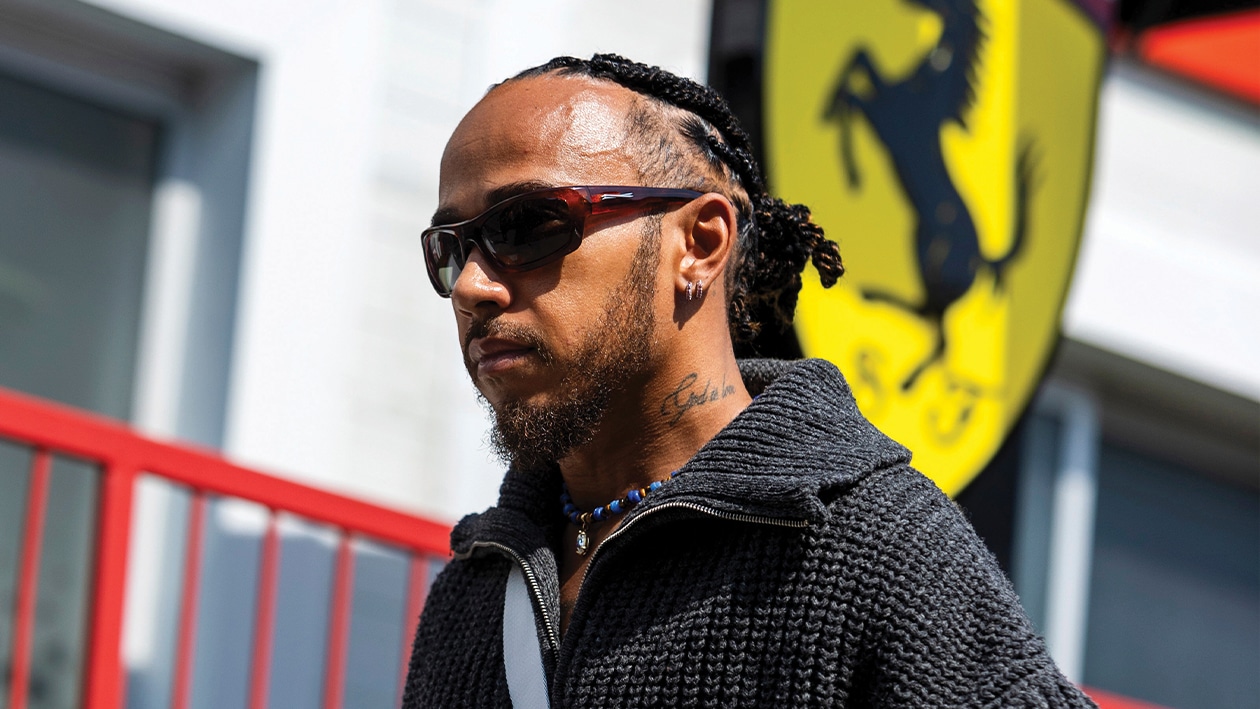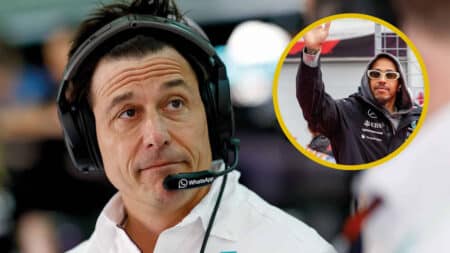Inevitably this fall-off in form has triggered questions about whether, at almost 40 years old, time is catching up with him. Maybe it is, but what we saw at Interlagos and Austin is not a representation of that. Talent doesn’t evaporate like that in a matter of weeks – this is the driver who won masterfully in changing conditions at Silverstone in July, just plain quicker in the wet than Russell and overtaking him on the way to that ninth British Grand Prix win. It’s the driver who had Russell’s number at Spa, decisively quicker throughout the weekend. Spa was just four months ago. Any deterioration of a driver’s speed will be measured in hundredths of a second. Being the wrong side of a tyre temperature threshold will be measured in whole chunks of seconds. Such as when Nico Rosberg was whole chunks slower than Hamilton in the wet of Monaco in 2016. Rosberg was world champion that year.
But that still leaves the awkward question of whether Hamilton’s struggle with the car and tyres is part of a general fading of his skills. Would the Hamilton of five years ago struggled to have got to the tyre temperature threshold? That’s a question which will only be answered in the fullness of time. Doubt will creep in, as he acknowledged even in victory at Silverstone when he said, “There’s definitely been days between 2021 and here where I didn’t feel like I was good enough or whether I was going to get back to where I am today.”
Give him a car in which he has confidence and the motivation to ‘rise’ against all the doubters – which has always been a powerful driving force for him – and it really wouldn’t be that much of a surprise if he has a great season with Ferrari next year. But maybe it won’t pan out that way, in which case he will be asking himself some very tough questions.
Hamilton is much closer to the end of his F1 career than the beginning
The point from Wolff’s perspective is that regardless of whether Hamilton has a brilliant 2025 at Ferrari, he’s much closer to the end of his F1 career than the beginning. There will come a day when the motivation and desire will just not be there. This is the awkward period in Hamilton’s career which Wolff has sidestepped. As the team boss, he has to judge the succession plan – and it’s far better he installs it a year early than a year late. He’s been spared that decision.
It really isn’t a question of loyalty. That’s not how F1 – or probably any sport – works. Mercedes and Hamilton have given each other fantastic, unprecedented success. But that doesn’t tie them into each other indefinitely. A team and driver work to different timescales. There is an overlapping period where their aims mesh and we’ve seen the spectacular outcome of that in the case of this partnership. Naturally, feelings may get bruised as the process of untangling that relationship plays out, but to attribute that to disrespect is a long way off the mark.
Wolff, in his open and straightforward way of explaining the end of the Mercedes-Hamilton partnership, has inevitably attracted such accusations in an age where any utterance will be ‘propaganda-ised’ by the tribal elements of F1’s fanbase, a low-IQ game in which all nuance and subtlety gets bled out.
Paddock Talk
“The car is like a plank of wood… I could happily take a holiday”
Lewis Hamilton vents his frustration after the Mexican Grand Prix and hints that he may not finish the season
“F1 offers Kit-Kat the perfect platform to remind everyone to make time for a break”
A Nestlé spokesman welcomes a three-year multi-million-pound sponsorship deal with F1
“It makes no sense. It’s a New Zealand team. The name is still McLaren”
Liam Lawson questions the use of the UK national anthem at the podium ceremony after a McLaren win



